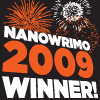At the end of the school year I handed out a Summer Literacy Packet to my students. I told my students it was completely voluntary, and I am very happy to say that a few of my students have been sending me weekly emails detailing their progress. And come August I expect a few more to pop their notebooks in the mail to me. It’s been awesome being able to continue our literacy dialogue through the summer months and I am enjoying the deeper conversations we have been having over email. But today I received a letter essay from one of my students that only further fueled my anger with required summer reading lists.
This particular student is a very strong reader, and an avid one. She is currently reading The Adventures of Tom Sawyer. (Three of the six books on our summer reading list are classics). The email I received from her today broke my heart. This girl loves to read and shouldn’t be forced to read a book that she is hating. All year long I preached choice, choice, choice. I taught my students to choose books on their level, and to be aware when books are not on their level. Tom Sawyer needs a good deal of scaffolding for 7th graders, and that scaffolding can’t happen over the summer, when students are on their own.
I want to share a few quotes from her letter:
Today, I read chapters 15 and 16 in Tom Sawyer. So far I rate this book a three out of ten. this book is really boring and I do not understand it. Every chapter talks about something different then the last chapter. It doesn’t flow very well. It also shocks me that it is considered a classic because I am not enjoying it. I expect more from a classic than this book has to offer
Is this how we want to introduce the classics, the canon of English literature to our students? How long will this attitude stay with these student?
Also, they talk in old southern accents and use older words and use old fashioned tools and devices. Finally, it is boring because the print is small, it is hard to read, the characters are boring, the adventures are boring, and basically the whole book is boring.
Scaffolding, scaffolding, scaffolding! This should not be happening! The vocabulary is difficult, the accents are hard to decipher, and a lot of the “adventures” require a good deal of historical background knowledge. All things students are not being supported with during summer reading. Ridiculous!
I would recommend this book to no one except older people from the South. This book is boring and a waste of time. I can’t wait to finish this book and be done with the required summer reading!
The only thing these required reading lists is doing is making our students despise the classics. There is nothing wrong with the classics, but forcing students to read them independently, without the background knowledge and support they require is practically cruel. It really is a shame.
Filed under: education, kidlitosphere, reading, reading workshop, teaching | Tagged: classics, required summer reading, summer reading, summer reading lists | 6 Comments »





 Marcus is a geek and a typical teenage kid. He loves computers, programming, and hacking. Nothing major, just fun stuff. What he really loves is his online/real world computer game. He and his friends have formed a team and are competing in a worldwide scavenger hunt for the grand prize. Unfortunately, a lot of the clues are released during school. And his high school tracks students, butnot just by their computerized schedule. Oh no- there are “gait cameras” that scan your gait and try to match it to known students. Makes skipping class a little harder than normal. Not to mention the software on their school-issued laptops which tracks every keystroke, website visited, and program opened. Luckily, Marcus has figured out a way around most of the technology employed by the school.
Marcus is a geek and a typical teenage kid. He loves computers, programming, and hacking. Nothing major, just fun stuff. What he really loves is his online/real world computer game. He and his friends have formed a team and are competing in a worldwide scavenger hunt for the grand prize. Unfortunately, a lot of the clues are released during school. And his high school tracks students, butnot just by their computerized schedule. Oh no- there are “gait cameras” that scan your gait and try to match it to known students. Makes skipping class a little harder than normal. Not to mention the software on their school-issued laptops which tracks every keystroke, website visited, and program opened. Luckily, Marcus has figured out a way around most of the technology employed by the school.